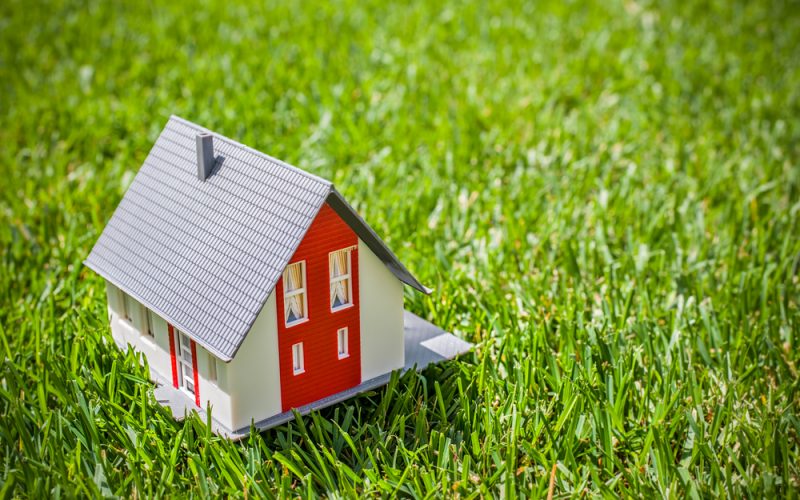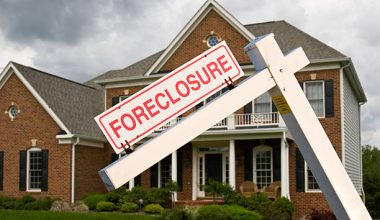In many cases, properties are bought and sold together with the land. But with a land lease, it’s possible for more than one individual to own a property. This means that while one entity may own the land, another one can own the property on the land.
In a land lease, a tenant is able to build their own structures or improvements while the landowner collects his/her rent every month.
Depending on the situation, a land lease may prove to be a better option than a traditional home.
Find out more about a land lease and what makes it better or not when compared to the traditional home as you read through this article.
Let’s get started.
What is a Land Lease?
A land lease, also known as a ground lease is a situation where the owner of the land, known as the landlord, rents out the land to a tenant, or lessee.
The land lease arrangement is very common when the land is to be used for commercial purposes. More so, residential properties are not left out, as many residential property owners pay to lease the land their homes are on.
After the land lease agreement, the tenant usually makes improvements to the property. He/She may decide to build a restaurant, supermarket, or any other desired structure.
Furthermore, since it’s an agreement, the terms of the lease dictate what happens at the end of the lease term.
The landlord may get rights to the buildings, allow the tenants to remove the improvements, or give the landlord the opportunity to purchase the improvements.
READ ALSO: HOUSE FORECLOSURE Explained!!! (+ Detailed guide to buying Foreclosed homes
Types of Land leases
There are two main types of land leases. They are;
- Subordinated
- Unsubordinated
In a subordinated land lease, the landlord is at risk if the tenant fails to pay the loan for their property. In a situation where the bank has to foreclose the property, they may have to take the land too.
A subordinated land lease is risky, but the good side to it is that it allows landlords to charge more and obtain more favorable terms in compensation for the higher risk of the land lease type.
While an unsubordinated land lease separates the property from the land. This means that if the tenant fails to pay his loan, the land is still kept safe.
In this type of land lease agreement, the landowner receives more protection, but it is riskier for the lenders. Due to this, it may be very difficult to get financing for an unsubordinated land lease.
In most cases, the yield of land leases is lower than the other types of leases because of the limited cash flow. However, it can still prove to be an opportunity for a stable cash flow with the right tenant.
READ MORE: RENT TO OWN HOMES: A COMPREHENSIVE GUIDE AND ALL YOU NEED (+ U.S LISTINGS)
How does Land Lease Work?
As a tenant considering a land lease, you’d need to act as both the landlord and the tenant. You’d need to get a mortgage for the property or pay in full if you can afford it.
Additionally, you’d have to account for what you pay yearly in lease and other fees. More so, some land-lease properties are part of homeowners associations. This means that you’re responsible for paying dues.
How to get a Land Lease Agreement?
In the United States, land lease agreements are more common for manufactured housing and mobile homes.
There are about 40,000 land lease communities, also known as mobile homes or trailer parks according to the Manufactured Housing Institute. And you can find leasehold properties in other places too.
Leased-land properties exist in large numbers across the country. From retirement communities in California to high-rise buildings in New York City, leased-land living exists everywhere.
If you are searching for a leased-land property, a real estate agent is your best source. Your real estate agent will have a better idea of land lease agreements in your area.
READ MORE: PATIO HOMES: Best Patio Home listings for Sale & Rent (+ Quick Guide)
Pros and Cons of Land Lease Agreement
Below are the advantages and disadvantages of a land lease agreement.
Pros of Land Lease Agreement
- As a Landowner, you get a stable source of income. This means that you can gain income from a long-term relible tenant without losing ownership of your land.
- Buying a property on a leased land is cheaper than the traditional home.
- As a landowner, you may get rights to any improvements made on the land when the lease agreement ends.
- Buying a leased-land prperty gives you access to stay in expensive areas where ordinarily you wouldn’t afford.
- You enjoy low property taxes. Because you are taxed on only the property and not the land, your property tax bill is lower.
READ ALSO: Home Business Ideas with Low Start Up Costs: Get the Top 20 Here (+ Easy Quick Tips)
Cons of Land Lease Agreement
Below are the downsides to a land lease agreement.
- The most significant disadvantage of a land lease agreement is that it’s dificult to build equity. With a leased-land property, you stand the risk of losing all yur equity at the lease expiration.
- With a leased-land property, there is a tendency for increase in costs.
- Leased-land property are often a part of a HOA. This means extra monthly fees that maybe unpredictable.
- With a leased-land property, you’re less likely to move if your landowner fails to maintain the property. More so, land lease agreements can be very difficult to get out of.
- Getting a mortgage can be tricky. for example, if you’re applying for a 15-year mortgage, and you intent to live on a leased land, your borrower may need solid assurance that you’re going to be able to stay there for at least 15 years.
READ ALSO: High paying sit at home businesses for women to start with low capital
Should You Buy a Property on a Leased Land?
The answer to this depends on what your financial budget is. In a leased-land property, a lower purchase may be enticing, but the potential risks of increasing cost can take away any financial benefit you may have.
If you really want to buy a leased-land property, then you need to ask yourself the following questions
- How long is the lease term? If the length of the lease is less than the time you intend to stay in the house, then you should know what will happen to your interest at the end of the lease. The lease term affects your ability to finance the home.
- What the monthly HOA fees are, and any other expense. If the fees are adjusted, how often will they be, and by how much?
- Is It better to rent?
READ ALSO: Risk Avoidance: Best Practices and all you should know with Examples
Bottom Line
Buying a home on leased land may seem appetizing because of its low fees, unlike the traditional home. But, what you are unaware of, are there numerous fees that come with the leased-land property.
I hope this article helps you understand what a land lease is and if it’s better than a traditional home.
If you have any questions or suggestions, kindly let me know in the comments section.
All the best!
We Recommend These Articles
- HO5: Overview, Policy forms, Charts & Insurance Guide
- Real Estate Industry: Overview, Types & Examples
- Money Factor: Detailed Explanation & Tips To Spot a Good Lease
- Predictive Analytics: Definition, Examples, and Benefits
- BUSINESS LOANS FOR VETERANS: Best Easy 2023 Guide and; US Practices






